Latest: Coronavirus in Spain figures (3 Sept)
Collapsed building catastrophe in Castellón
A day of mourning and a minute’s silence were held in Peñiscola (Castellón province) on Friday, out of respect for the two people who died when their three-storey apartment block collapsed on Wednesday.
A woman of Cuban origin was killed in the accident along with the 14-year-old son of her partner. Her partner survived unhurt, and the woman’s 26-year-old son was pulled out of the rubble alive and taken to intensive care at Vinaròs Hospital. On Friday his condition had improved enough to be moved from the ICU to a ward.
Peñiscola mayor, Andrés Martínez, spoke at the act on Friday and thanked emergency services for their tireless rescue work, as well as the town’s residents who had brought food and drink for those involved in the rescue effort, and the neighbours who had given shelter to the holidaymakers who had been left with nowhere to go.
The cause of the collapse, which destroyed 18 of the 55 apartments, is still unknown, but the mayor assured the town that there would be ‘an investigation to find out what happened’.
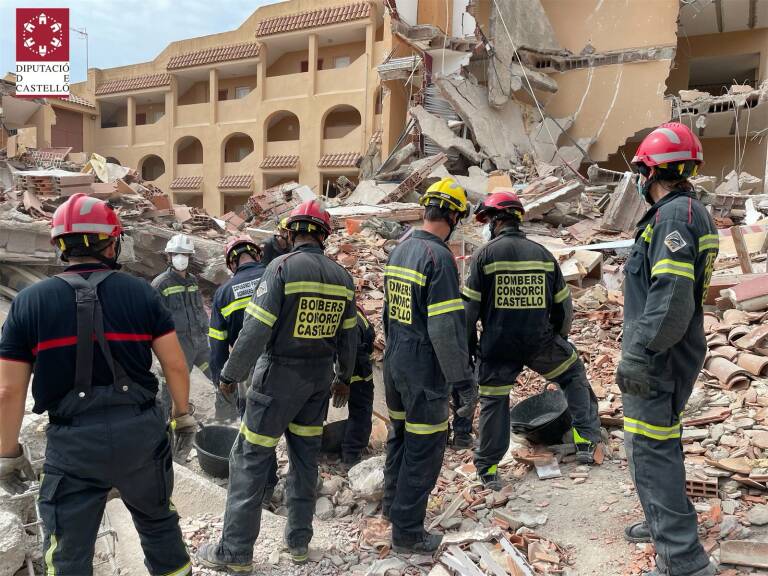
He continued: ‘With the help of the Valencian and Spanish governments we are going to get to the bottom of this. The specialists have been working right from the start with the remains of the building and the central staircase, which is the part at risk of falling, to see which areas are safe to work on.’
He explained that the work would begin with hundreds of lorries clearing away the debris of the 18 apartments and the report to find out what caused the collapse will be done, but he warned that ‘finding out what happened could take weeks or even months’.
He said many of the people who had been left ‘homeless’, had returned to their own towns and cities or would do so soon, as they had been staying in the apartments on holiday, but meanwhile they could stay in the town’s hotels.
However, he highlighted the case of the owner of the affected apartment who had come out of the accident unharmed but that he had lost ‘his home, his partner and his son’ and was receiving psychological help from social services as well as financial aid from the town council and the regional government given that it had been his only home.
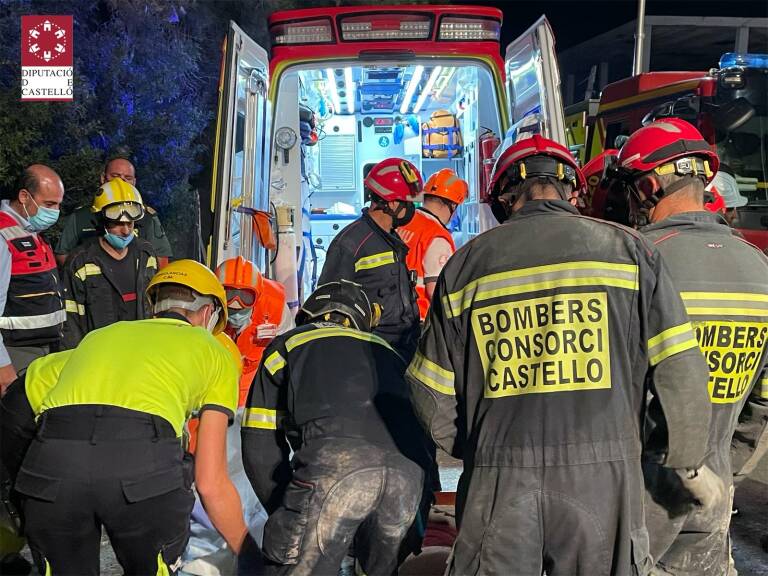
Valencia shows support for Afghan women
A concentration was held in solidarity for the women and girls of Afghanistan on Wednesday evening in Valencia’s Plaza de la Virgen. Acts of solidarity were held across Spain and were organised by the Assemblea Feminista along with other femninist organisations.
The Valencia region has offered to take in Afghans who find themselves in peril. Last week Valencia’s minister for equality, Mónica Oltra, said they would be very welcome as Valencia is a land which is open to refugees, saying they would find a ‘safe refuge’ here. In the summer of 2018 it was Valencia that welcomed the MV Aquarius rescue boat, with its 629 refugees and migrants, after Italy and Malta had refused to let it dock.
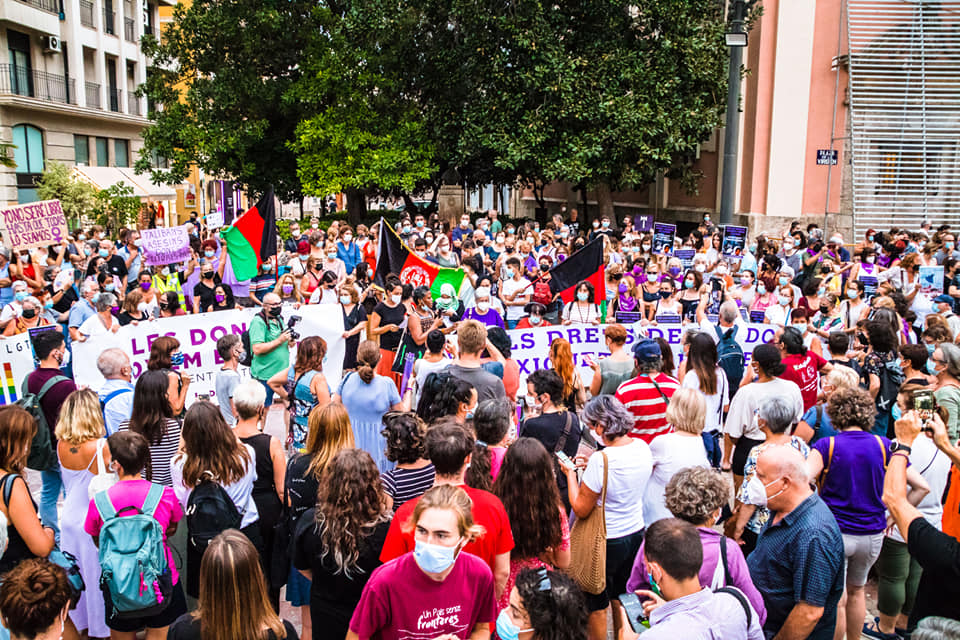
Oltra’s thoughts were echoed by Valencia’s mayor, Joan Ribó, who tweeted a photo of the city hall building showing a banner which read: ‘Valencia Ciutat refugi’.
So far, a total of 718 refugees from Kabul have arrived in Spain, with 57 Afghans coming to the Valencia region, although the exact locations of where they’re staying have been kept quiet to protect their privacy. ALSO READ: Spain concludes its evacuation operation from Afghanistan.
The Universitat de Valencia (UV), has also offered help to Afghan women as it organises a support programme with the aim of incorporating female Afghan students and professors in Spanish universities.
The UV has called on the university community across the country as well as the Spanish authorities to avoid ‘losing this opportunity of training’ following the seizing of power in Afghanistan by Taliban forces, starting from the premise that education is ‘the most powerful lever for equality and the rights of women’. ALSO READ: Basque Country basketball club welcomes Afghan wheelchair player.
Violet Against Violence
During Las Fallas celebrations, which this year will be held from 1-5 September, there will be six purple points or Puntos Violetas with the aim of preventing acts of sexual aggression. The stands which will be set up across the city, will be manned from 7pm to 1am, to comply with the curfew rules. They were also present in the city during previous Fallas celebrations, as well as on 23 June, the celebration of the eve of San Juan, and New Year’s Eve.
The plan was announced on Wednesday by the city council, and councillor for equality Lucía Beamud explained: ‘The Puntos Violetas are useful spaces to transmit an anti-machista message to the wider society, as well as establishing immediate and accessible channels to report (aggressions) and to help victims.’
The location of the six stands will be: Plaza del Ayuntamiento (behind the fountain, opposite the Rialto Theatre building), Plaza del Tossal, Plaza del Doctor Landete (next to the San Valero church), Plaza de Cánovas, Paseo Marítimo (close to the Hotel Neptuno) and in Avenida Blasco Ibañez (at the junction with Calle Manuel Candela).
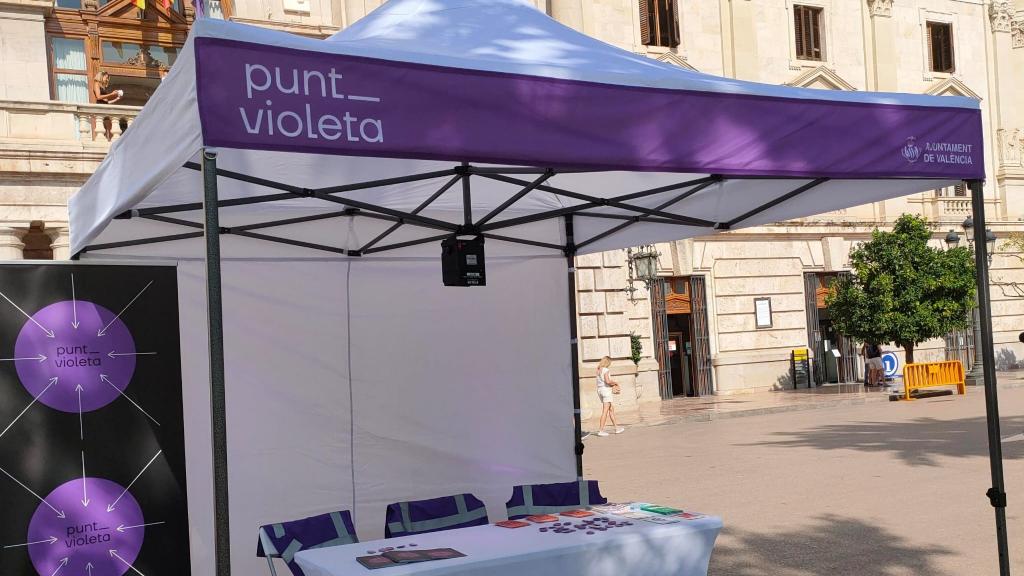
Meanwhile, Benidorm’s city council held a minute’s silence on Wednesday following the confirmaton that a woman killed in Navarra on 7 July was a victim of domestic violence. The 43-year-old was shot by her ex-partner and ex-brother-in-law in front of her children, aged five and nine. This brings the total of women killed so far this year to 33.
The council recommends that anyone who suspects a case of domestic abuse or is suffering domestic violence can call the freephone number 016 which is manned 365 days a year and can be attended in 52 languages. The number leaves no trace on a telephone bill, although erasing it from the call log is recommended.
Back to school with face masks, bubble groups and social distancing of 1.2m
The new school year, which gets underway on 8 September, will begin with the measures which were agreed by the education community in May: face-to-face learning, compulsory face masks for children over six, a reduction in social distancing to 1.2m where the Covid-19 incidence rate is low.
The announcement came on Wednesday, following a meeting of the education departments of the central and regional governments. Regional education minister Pilar Alegría said that one of the main objectives was the maximum amount of face-to-face classes as possible. She said that presencial classes had been shown to be ‘an absolutely necessary tool to improve equality in education’.
She continued, saying that this year Spain has another ‘fundamental tool’, that of vaccination, that all the regions are vaccinating over 12s and almost 100% of teaching staff are fully vaccinated.
Also speaking after the meeting on Wednesday, Valencia’s education minister, Vicent Marzà, said that 78% of the region’s over 12s had already received a first jab of the Coronavirus vaccine. He said that 100% of students will have had the chance to receive a first jab before going back to class in September and that ‘the large majority’ will already have received their second jab. He said this was very positive news and that it would help towards a much calmer start to the school year. ALSO READ: Covid-19 Vaccinations in Spain.
He added that there would be 100% face-to-face teaching, which the government was guaranteeing with 5,000 more teachers to better attend to students’ needs.
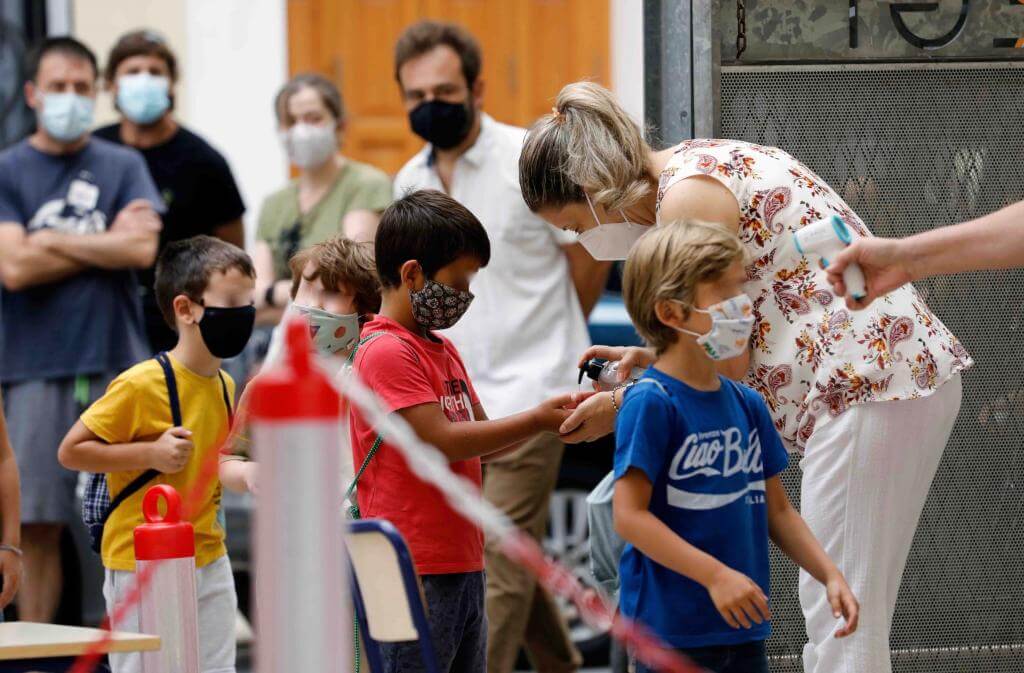
Coronavirus infections and deaths decline but ICU figures up
This week there have been 5,712 new infections from Coronavirus, significantly fewer than last week’s 7,014. There have been 9,298 all-clears, compared to 12,261 last week. There have also been fewer deaths, 33 this week, compared to 52 last week.
Hospital admissions are also down, 411 this week, compared to 475 last week, although the number of people in intensive care has increased, from 84 last week to 93 this week. Click here for all reports on: Coronavirus in Spain.
Click here for our ‘Valencia in English’ home page. Click here for all our Valencia News reports
If you’d like to contribute to our Valencia section, please email: editorial@spainenglish.com
Sign up for the FREE Weekly Newsletter from Spain in English.
Please support Spain in English with a donation.
Click here to get your business activity or services listed on our DIRECTORY.
Click here for further details on how to ADVERTISE with us.


